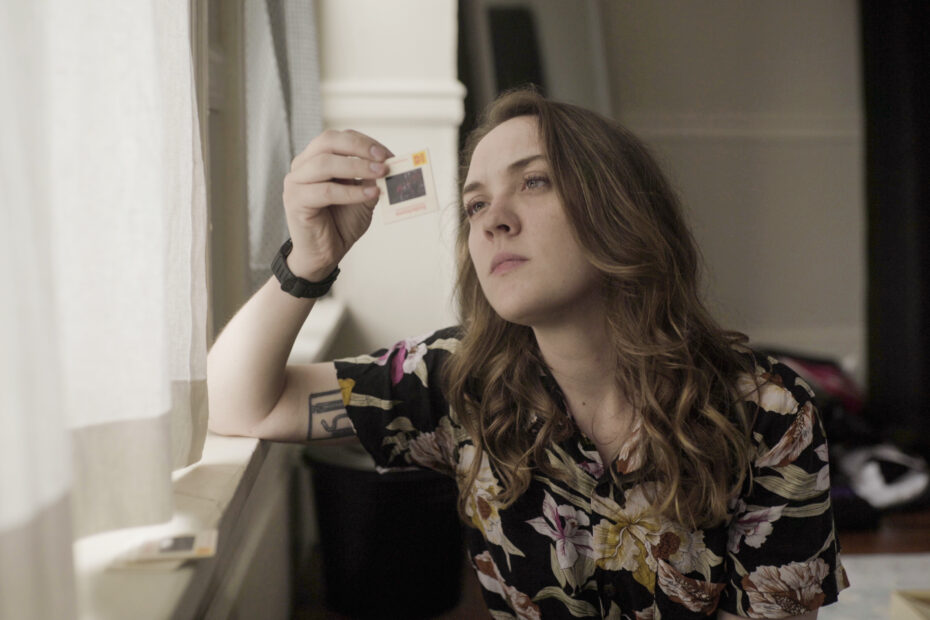‘Might be the best film I’ve seen all year.’
I need to say immediately that this review is about a film that deals with child abuse. Frankly, I wasn’t sure I would be able to watch it all, but I’m glad I did because it might be the best film I’ve seen all year.
The genius of co-directors Amanda Mustard and Rachel Beth Anderson is in realising that while it may deal with abuse, this is actually about something everyone can relate to, family conflict. As Mustard says at one point, “We have been driven to be more angry with each other and not grandpa, when grandpa is the reason for all of this tension, all of this division.”
That said, the film doesn’t hold back, it’s confrontational from the outset, with the perpetrator, and Mustard’s grandfather William ‘Bill’ Flickinger victim-blaming nine-year-old girls within the first five minutes. It’s narratively told with interviews, family photographs, and home video footage. The challenge is in the unflinching directness of the accounts.
Mustard is a renowned photojournalist whose work has been featured in some of the world’s leading publications. In her early 20’s she moved to Cairo to cover the consequences of the Arab Spring. As she reveals here, she did so partly because she was desperate to get away from her home and dysfunctional family.
Bradford, Pennsylvania is possibly most famous as the home of Zippo lighters. It was there, in 1975, that Flickinger’s abuse was first discovered. He was convicted of the statutory rape of a 12-year-old girl. He was given two years probation and did not spend one day in jail for that crime. He was able to move 200 miles Southeast to the town of Harrisburg in the same state, where Amanda and her siblings grew up and where he continued his crimes.
The film is built around – shocking – interviews with Flickinger, but spends more time with the family and his victims, exploring the aftershocks of the abuse. It is structured superbly, with the deceptively simple ease of a natural storyteller. For example, a palpable tension builds over a necessary confrontation. I was concerned that this confrontation might not happen. Mustard intuits that tension and builds it into the climax, mining the conflict for accountability, reconciliation, and growth. It’s a compelling testament to the quality of the film. This confrontation is not with Flickinger. Much of that happens early on. Instead, this is with a person who is herself a victim, but for me, my initial sympathy was replaced by horror and disbelief at a subsequent revelation. This is a powerful story, strikingly told despite all the manifest trauma.
Another shattering moment in the film is when the scale of the abuse becomes clear. It’s shown visually and Mustard’s grasp of her craft is evidenced again. Flickinger’s wife refers to his activity as an ‘addiction’. Is it? Addiction has been in the spotlight recently following the death of Matthew Perry. He understood that he had a choice about the first drink, but only the first. Addiction wrested control from then on, and science supports Perry’s assertion. Can Flickinger’s activities be described this way?
Some time ago, I briefly worked for the police in a civilian role. At the time, guidance was to refer to people like Flickinger as child abusers, rather than paedophiles. The intention was clear. One should not pathologise this behaviour. But this goes further. The Cambridge Dictionary defines ‘paedophile’ as ‘someone who is sexually interested in children.’ ‘Interest,’ though incomprehensible, is not the same as action. Since all crimes require both a mental and a physical component, then does it logically follow that someone could be the dictionary definition of a paedophile without being a child abuser? The film asks that question. At one point, Mustard says: “When I watch these tapes [home video tapes recorded by Flickinger focusing on the blurred faces of numerous young girls], I see a man with a serious problem who knows that he’s not going to get caught and I can’t help but feel like, if there had been some way for him to get help, how much of all this could have been prevented?”
In other words, if the paedophile (who admits to having these urges his whole life) could have been treated, would it have stopped him from becoming an abuser who wrecked so many lives?
That in itself is challenging, possibly something many won’t wish to contemplate. The fact is, however, that the mere act of watching this film becomes an acknowledgement of the abuse, an acknowledgement that Flickinger denied his victims. I’m not going to condescend to Mustard about her bravery, but in making this she has created something vital, in every sense of that word.
Flickinger’s tapes are disturbing viewing. Recordings of young girls innocently shopping at the mall, or of his kids are, in effect, seeing these people through his eyes. But the matter-of-fact way that he talks about his actions is worse. And when confronted by direct testimony from his victims, including one of his grand-daughters, Flickinger manages to mutter a half-hearted ‘apology’ for “things that happened,” not “things that I did,” it reinforces the importance of a film like this not just in holding the abuser to account, but in giving his victims a voice.
This is further reinforced by the religious aspects Mustard inserts at the heart of the story. She mentions early on that she no longer has any faith, but many in the film do, including Flickinger himself. At one point, a well-intentioned couple flamboyantly praying for Bonnie, one of the victims, is contrasted with Flickinger saying that he feels god has forgiven him. This is a belief shared with some terrorists, that actions in this life are meaningless in comparison with their supposed afterlife. It’s ironic therefore that Flickinger receives no funeral. His body is donated to science.
The conflict toward the end of the film is notable too for generational differences in approach. On one hand, is the need for accountability versus a belief that a failure to forgive is a poison. Bonnie by that point has already given her view, “fuck the word ‘forgive’.”
Hard as it is to watch in places, ‘Great Photo, Lovely Life’ was, for me, impossible to turn away from. I don’t know if Mustard will make further films after this viscerally personal story, but her talent is unquestionable. In bearing witness, in giving a voice to the victims and to the trauma itself, she has made something unforgettable and, I dearly hope, transformative.
HBO debuted the film on December 5th and it will be available on HBO Max.




